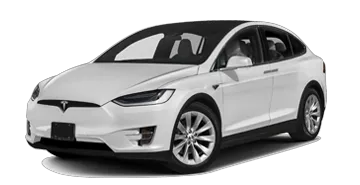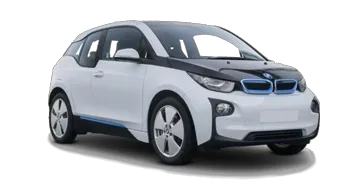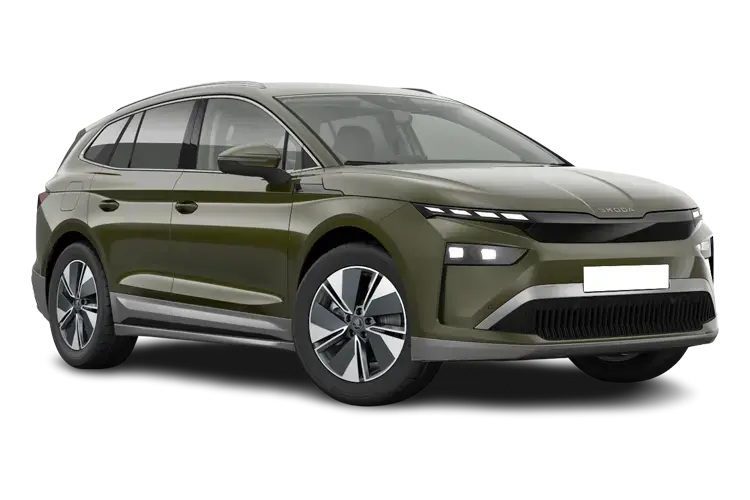GUIDE TO ELECTRIC AND HYBRID VEHICLES
An Electric Vehicle or EV is any vehicle that is powered in full or in part by a battery and uses one or more electric motors to propel the vehicle. The popularity of electric vehicles has risen significantly in recent years as more and more manufacturers launch electric vehicles as part of their core model range and as a result of step changes in technology which has led to electric vehicle ranges increasing and speed of recharging reducing. As the volume of new electric vehicle registrations continues to increase year on year we are also seeing the base list price of electric vehicles reducing. The UK government has also looked to promote the adoption of electric vehicles by offering grant subsidies when purchasing an electric vehicle new, along with road tax, benefit in kind concessions for company vehicle drivers and congestion charging incentives.
THREE MAIN TYPES OF ELECTRIC VEHICLES
1
Pure EV
2
Plug-in Hybrid
3
Extended Range
Pure Electric Vehicle / Pure EV
A vehicle that is powered solely by a battery which is charged from mains electricity and produces zero tailpipe emissions. The concept of an all electric vehicle has been around for over 100 years and with the number of moving parts being a fraction of that which goes into building a more conventionally fuelled vehicle the cost of maintaining and servicing a Pure Electric vehicle can be significantly lower and reliability much better with less opportunity to go wrong.


Plug-in Hybrid Electric Vehicles (PHEVs)
A vehicle that can be powered by either a battery or a more standard fuel based internal combustion engine (ICE). The driving range will typically be a lot lower for the battery fuelled option when compared to the range of the ICE powered by diesel or unleaded fuel, with battery range typically being 12-30 miles. The driver is able to switch between battery power and ICE at their convenience.
MILD HYBRID VEHICLES
A mild hybrid sits between a conventional combustion engine (Petrol or Diesel) vehicle and a Plug-In hybrid.
A mild hybrid uses a battery which is smaller than a PHEV battery, and a motor-generator that can both create electricity and help boost engine's output.
It is important to note that mild hybrid vehicles aren’t capable of all-electric propulsion so do not have an electric only (emissions free range) or zero emissions running option, this means the fuel savings aren't as significant as a PHEV however they do boost fuel efficiency and increase Miles Per Gallon (MPG).

CHARGING YOUR ELECTRIC VEHICLE
Electric vehicles are typically charged at one of three locations home, work or public charging point.
1
Standard charge ( 3kW)
generally home charging, where a full charge will take between 6-9 hours overnight
2
Fast Charge (7-22kW)
Typically dedicated charge bays, where a full charge will take between 3-4 hours
3
Rapid Charge (43-50kW)
This offers a very fast battery recharge option with circa 80% recharge completed within 30-45 mins
FUEL COST COMPARISON BETWEEN ELECTRIC AND DIESEL OR PETROL VEHICLES
The fuel cost per mile for any vehicle will depend on a number of factors, for standard petrol and diesel vehicles this will primarily depend upon the miles per litre or gallon for the specific vehicle and the cost of petrol or diesel per litre or gallon, for electric vehicles the fuel cost per mile will depend of the cost per KW of electricity and the number of KW hours to fully charge a battery. Currently the average cost of fuelling a Pure Electric vehicle is between 4ppm and 8ppm (Home / Workplace Charge), whilst the average cost of fuelling a petrol or diesel vehicle is 10p to 15p per mile.
BENEFIT-IN-KIND FOR ELECTRIC COMPANY VEHICLES
The UK government as part of its broader environmental policy strategy, wants to support and incentivise the adoption of more environmentally friendly fuels. For business drivers that are provided with a company vehicle they will incur a personal benefit-in-kind charge for their personal use of the vehicle. Electric vehicles can offer business drivers a very low cost option for personal tax when compared to more standard internal combustion engine powered vehicles.
For information on all vehicle company car tax benefit in kind see our detailed page here.
ELECTRIC AND HYBRID VEHICLE OFFERS
TOP TIPS FOR INSURING YOUR ELECTRIC VEHICLE
1. Find the best deal by shopping around
Always get a number of quotes from different insurance providers, this isn't just a tip relating to electric vehicles but any vehicle you may lease or buy, premiums vary significantly between different insurance companies so it definitely pays to get a number of quotes. Comparison sites are a great way to do this quickly, although from our experience its is always best to go to at least 2 comparison sites as not all insurance companies may be registered with one particular comparison site. Also be mindful that some insurance companies do not appear on any comparison site e.g. Direct Line. As the popularity of new electric vehicles continues to increase a growing number of specialist electric vehicle insurers are entering the market, due to the focus on this sector and greater understanding of the electric vehicles being insured they may offer a more competitive premium.
2. Always look to get an indicative insurance quote before you commit to getting your new vehicle
Again general sound advice when leasing or buying any vehicle is to get some indicative quotes before you commit to getting your new vehicle. Insurance premiums can vary significantly between different vehicles and whilst the car insurance grade is one factor there are many other factors that will influence your premium. So always look at your total monthly costs when choosing your new vehicle, including monthly lease cost, servicing and maintenance, fuel and insurance premium.
3. Inform your insurer that your vehicle is on a Hire Agreement
When arranging your insurance cover please ensure that you disclose to the insurance company that the vehicle is on a Hire Agreement and that the finance company is the registered owner and keeper of the vehicle.
4. Confirm if your chosen electric vehicle, comes with the battery included or is provided by a separate lease from the vehicle manufacturer
Most electric vehicles will come with the battery included as a component part of the vehicle, however a small number of manufacturers have taken the decision to lease the battery under a separate agreement, please ensure that if this is the case that you inform your insurer.
5. Charging cable cover
This is a point that is unique to electric vehicles, when charging an electric vehicle on occasions some accidents have occurred when someone has tripped over a cable whilst the car is charging ( whilst this is not a common issue always be mindful of this point when you charge your electric vehicle), always confirm with your insurer if cable cover is included or not so that you can compare your insurance quotations on a true like for like basis.
COMMON ELECTRIC VEHICLE QUESTIONS
A self-charging hybrid is a car with a conventional petrol or diesel engine and an electric motor and battery. The difference between a self-charging hybrid and a plug-in hybrid is that a self-charging hybrid cannot be plugged in to charge the battery, instead it recovers energy that would usually be lost to power its electric motor.
There are some key points that will determine how appropriate an electric vehicle is as your chosen vehicle.
Overnight storage - Firstly do you have access to a garage or off-street parking as you will need this this in order to recharge your vehicle overnight. However options are now becoming available to potentially apply to your local authority to get an on-street charging point installed at a place which is close to your house, also the UK government's Plugged-in-Places programme offers match funding to business and public sector partners in eight regions across the UK.
Mileage - Your average daily mileage is also a key factor when determining if an Electric vehicle is a suitable option, typically average daily mileage of less than 100 miles make an electric vehicle a real option, drivers who have a standard daily commute to work of less than 20 miles are also well suited to an electric vehicle and with driving ranges continuing to improve year on year with new model launches, range is becoming less of a challenge for a large number of drivers.
Cost - Finally cost is a consideration which should not be overlooked as Electric vehicles still generally command a higher price than their internal combustion engine (ICE) counterparts, but with increased production of electric vehicles, greater price competition as more manufacturers offer an electric option and the significant savings on fuel that can be made when driving an electric vehicles they are fast becoming a mainstream choice. When leasing a vehicle the costs of purchasing it are less relevant as it the monthly lease costs that give a more true and accurate reflection of cost, hence why when the low cost of maintaining an electric vehicle along with the potential significant fuel savings, the monthly total running cost of driving an electric vehicle can make them the perfect choice for many drivers.
All vehicles by law have to conform to very strict minimum safety regulations, electric vehicles will also have to meet certain standards which cover the safety of the vehicle's battery and charging cables. All new cars are also tested to the same safety standard called NCAP, this safety standard covers crash tests which assess adult, child and pedestrian safety and gives vehicles a rating out of 5 stars. Generally the safety of electric vehicles is comparable to more standard combustion engine vehicles of similar size, please see our vehicle details for the NCAP safety rating of the vehicles you are interested in.
Generally costs for servicing and maintaining a Pure Electric vehicle will be lower than that for a vehicle fuelled by petrol or diesel. The main reason behind this is that Pure Electric vehicles have a much simplified powertrain with far fewer moving parts and consumables. Industry figures say that the average cost for maintaining and servicing a petrol or diesel vehicle is £460 per year compared to the average cost for a Pure Electric vehicle which is approximately £115...an annual saving of £345. Costs for any vehicle will vary by make and model and also depending upon its age and annual miles driven.
Whilst most electric vehicles can be charged via a standard 3-pin socket, we would definitely advise that a dedicated charging point is installed at your home by a qualified installer. Standard 3-pin sockets are not designed for continuous high power Electric vehicle charging and similar to your cooker should be put on a stand-alone circuit.
A charging point is a compact weatherproof unit that can be mounted on an exterior wall close to the area where your vehicle is parked over night. These home charging units can offer a safer and faster way to charge your electric vehicle at home.
Costs can vary between £250 to £500 to install a charging point at home. When installing a home charging point try to position it in a location where the charging cable does not present a trip hazard.
Generally speaking most Electric vehicle batteries should last at least 8 -10 years or 150,000 miles, over time the battery power may reduce in capacity and this tends to be more of a result of lack of use and charging than too much usage and over charging. For full details relating to your Electric vehicle's manufacturer warranty refer to the Manufacturer's warranty terms and conditions
All new Electric vehicles will come with a full manufacturer warranty and will have specific provisions to cover the electric vehicle's main battery. If a vehicle is pre-registered, you will be entitled to the balance of the manufacturer’s warranty outstanding from the original date of registration. For full details relating to your vehicle's manufacturer warranty please contact one of our customer services executives or refer to the Manufacturer's warranty terms and conditions.
All vehicle insurance policies will have a premium that is calculated on a number of different factors, these will include the type of vehicle, its cost, power and safety credentials, how secure the vehicle is from theft and how expensive repairs would be in the event of an accident or damage to the vehicle. The insurance premium will also factor personal details regarding the driver, age , driving claims history, location, occupation and annual mileage are also some examples of factors that can influence a vehicle's insurance premium. When electric / hybrid vehicles were less common insurance may have come at a premium to more standard vehicle types as insurers were unsure as to true levels of risk and cost associated with electric / hybrid vehicles. However these vehicles whilst still relatively small in numbers have increased in popularity and are now much more commonplace. As a result insurance premiums should now be much more in line with similar costing standard fuelled vehicles.
All Electric vehicles will state the anticipated range that the vehicle will travel on a full battery charge and your electric vehicle will always have a real time indicator as to the current driving range for the vehicle when you are driving it.
The range is based on a number of average factors that could influence the actual range your electric vehicle will drive. These factors will include Weather - Weather extremes , i.e. very hot or cold temperatures may degrade the battery performance, also heating the vehicle interior or cooling it with air conditioning may also use battery power and subsequently reduce the range.
Driver style - This can also affect the range achieved in your electric vehicle, higher speeds will short the range whilst slower more conservative driving can extend the driving range.
Road Type - Motorway driving will tend to be at a consistent higher speed and so can result in some range, while inner city driving will tend to be at much lower speeds so the battery range will tend to perform better
Pure Electric vehicles will typically have a range of 100 -200 miles but some Pure Electric vehicles now have a range exceeding 250 miles. PHEVs currently have an electric range of between 15-40 miles. Extended Range Electric vehicles usually offer a similar range to that of a Pure Electric vehicle but can then use a small combustion engine in the vehicle to extend the range further.
When driven a Pure Electric vehicle has zero emissions of greenhouse gases or health harming nitrogen oxide and offer a very quiet form of motoring and as such are viewed as a very environmentally friendly choice. However to answer this question properly, factors such as how the electricity has been generated ( burning fossil fuels or more sustainable electricity generation) to fuel the vehicle and the environmental impact of producing and disposing of an electric vehicle battery are factors which should be considered.
A hybrid car combines a conventional petrol or diesel engine with an electric motor and batteries. An electric car runs solely on electricity and therefore produce no exhaust emissions.
The difference between a hybrid car and a fully electric car is that a hybrid still has a conventional fuel engine as well as an electric motor whereas, an electric car gets all of its power from electrical sources.
A hybrid car emits fewer emissions than a conventional vehicle but isn’t as environmentally friendly as a fully electric car, which emits zero emissions.
More and more businesses are now looking into electric vans as a viable option to the more standard alternatives of diesel and petrol fuelled vans. With more manufacturers now offering electric or hybrid van models, the choice is increasing and the premium paid for electric vehicles continues to decrease as the scale of manufacturing volumes increase. Businesses are not only looking to benefit from the fuel savings offered by electric vehicles but also the cost savings generated by lower road tax charges and the more regional based discounts / waivers of congestion charging.
Key factors to consider include:
the total monthly running cost of the vehicle, core lease cost including depreciation, road tax and finance, maintenance and servicing costs, fuel costs, associated costs that may vary dependant upon fuel type e.g. Congestion charges, Benefit In Kind for the driver, national insurance payments.
The average daily business / commuter mileage - Pure -Electric vehicles have an average driving of around 100 miles, so businesses whose daily mileage is within this range make an all electric vehicle a viable option, for greater daily mileages a hybrid or extended-range vehicle may offer a more suitable alternative.
Charging infrastructure - based on the planned location of the vehicle charging points will need to be easily accessible or installed. 4/ Business green credentials - many businesses are now choosing electric / hybrid vehicles to reinforce their green credentials, also it is now becoming more common that in certain industry sectors customers are demanding and stipulating a green delivery requirements for their chosen supply partners.
The first electric car was built in England back in 1884 by an inventor called Thomas Parker, which used his own high-capacity rechargeable batteries.
Hybrid vehicles have both a conventional fuel-powered engine and an electric motor and battery.
Hybrid cars use electric power to drive short journeys or when travelling at low speeds. At other times, or when the electric power has run out, the fuel engine powers the vehicle. This helps to save fuel and reduce running costs and emissions.
Petrol and diesel cars usually have faster top speeds than electric vehicles, but electric vehicles can accelerate quicker as they generate more torque.
Electric cars require servicing just as frequently as conventional cars.
However, maintenance costs are often significantly less than in fuel-powered cars as electric vehicles have fewer moving parts so there is less to go wrong.
Electric cars can be charged by plugging them into a charging point. This can be done in several different places; at home, at work (if they have EV charging points), or at a public charging point.
To charge your car at home you will need to first have a home charging point installed.
Public charging points can be found in many car parks, including those belonging to some supermarkets, shopping centres, gyms, town centres, and retail parks. Sometimes, public charging points are even free to use.
The cost of charging an electric car will vary depending on the type of car, where you are charging it, and whether you are using a rapid charge service.
Generally, fully charging your car at home for about 13 hours will cost between £4-6 depending on whether it is on or off peak.
When charging your car at a public charging point, you can choose either a pay-as-you-go service or a monthly subscription with a monthly fee. Monthly fees cost around £8 on average, whilst pay-as-you-go services can cost anything from 20p to 70p per kWh. Sometimes you will find public charging points that are free to customers.
The length of time it takes to charge an electric car will vary depending on several factors:
The type of car.
The size of its battery.
The speed of the charging point.
It can take as little as 30 minutes to fully charge a car at a rapid charging point. However, on average, it takes about 8 hours to fully charge an electric car at a 7kW charging point.
How far an electric car can travel on one charge varies depending on the make and model.
Most electric cars can now travel for at least 150 miles once they are fully charged, with top-of-the-range electric vehicles boasting a range of up to 350 miles.
The average person drives around 37 miles per day, so unless you have a very long commute each day, it is not usually necessary to charge an electric car every night.
For most people, charging their electric car overnight 2-3 times a week is more than enough.
It is estimated that homes with an electric car spend an additional £450 - £750 a year on electricity for charging their car.
It is possible to get a government grant worth up to £3000 when you choose an eligible low-emission vehicle.
Zero emission vehicles are also exempt from paying road tax.
If you choose an eligible electric company car during the tax year 2020/2021 you will benefit from a zero tax rate on Benefit in Kind, which could save you thousands of pounds a year.












